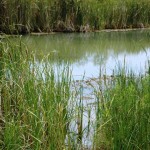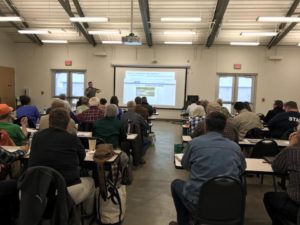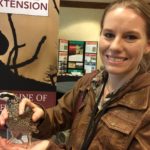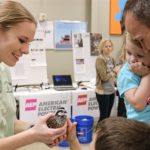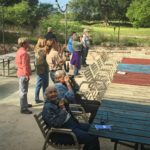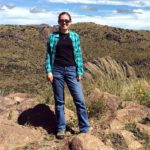Native plants, water conservation and Medina River tour among offerings
July 17, 2018
Writer: Paul Schattenberg, 210-859-5752, paschattenberg@ag.tamu.edu
Contact: Sam Womble, 210-631-0400, sam.womble@ag.tamu.edu
SAN ANTONIO — The Texas A&M AgriLife Extension Service will present two of its 2018 Urban Wildlife Series sessions in San Antonio during July and August.
The registration fee for each is $10.
Native and adaptive plants that use less water can be excellent choices for landscaping. (Texas AgriLife Extension Service photo)
The first session, titled “Every Drop Counts,” will be from 10 a.m.-noon July 31 at the Urban Ecology Center at Phil Hardberger Park, 8400 N.W. Military Highway. This session will address native plants and water conservation.
The second session, from 8 a.m.-noon Aug. 14, will be a field trip to the Medina River Natural Area, 15890 Highway 16 S. Attendees will meet at the area’s pavilion. Breakfast will be from 8-9 a.m. with tour and program from 9-noon.
Dr. Maureen Frank, AgriLife Extension wildlife specialist, Uvalde, and Matt Reidy, wildlife biologist with Texas Parks and Wildlife, Devine, will present on birding. Lee Marlowe and Shaun Donovan with the San Antonio River Authority will present on aquatic vegetation and water quality and testing..
To RSVP for these sessions, contact Carrie Huntzinger at 210-631-0400 or chuntzinger@ag.tamu.edu. Make checks payable to Bexar Ag & Natural Resources Committee. Mail registration fee to Texas A&M AgriLife Extension Service, 3355 Cherry Ridge, Ste. 212, San Antonio, TX 78230.
-30-

